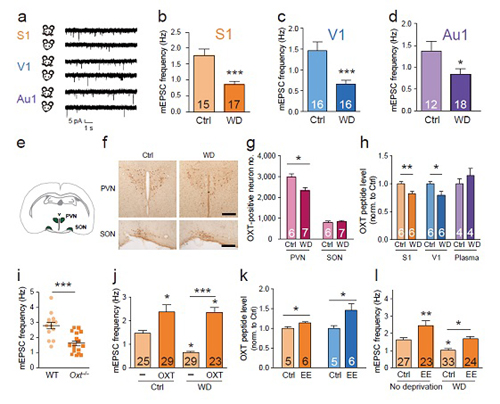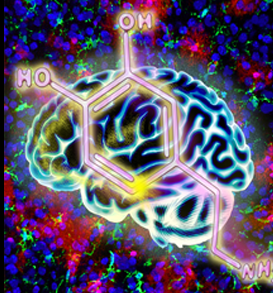
On September 22nd, the first Council Meeting of CAS Center for Excellence in Brain Science was held in Beijing, hosted by Prof. Rui-Ming Xu, the head of Bureau of Frontier Sciences and Education, Chinese Academy of Sciences. The council members approved the Center’s constitutions, organization, HR rules, project agreement, funding regulation and the first term of Center’s Academic Board members.
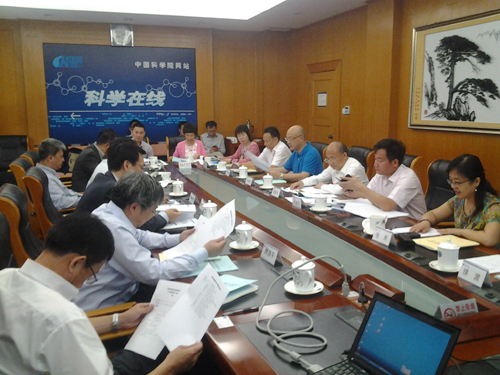
On September 26th, 2014, Dr. Xiang Yu (Institute of Neuroscience, Shanghai Institutes for Biological Sciences, CAS) was awarded the Shanghai Outstanding Young Scientists Award (Basic Research) for her research on the activity-dependent neural circuit development.
Latest study from Dr. HU Hailan’s lab unraveled an emotional valence map in the forebrain. This research was published online in Nature Neuroscience on September 21, 2014. This work was mainly carried out by graduate students XIU Jianbo and ZHANG Qi under the supervision of Dr. HU Hailan.
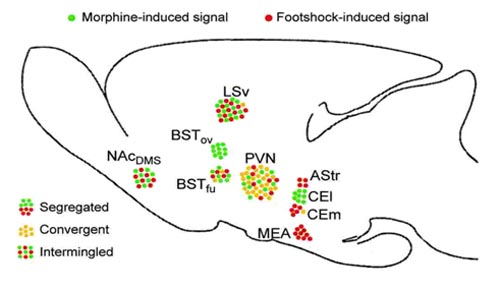
Dr. Hailan Hu was invited to visit RIKEN brain science institute and attend the symposium at the Japanese Society for Neuroscience 2014 held in Yokoyama during Sept 11-13. She gave a talk entitled “Neural Mechanism of Dominance Hierarchy”.
Dr. Jiulin Du was invited to attend the 2014 FEBS-EMBO Conference held in France during Aug 31 – Sept 03 and gave a talk entitled “Dopaminergic Gating of Visuomotor Transformation via Inhibition”.
Based on recommendations of the International Academic Review Committee and ION senior investigators, Dr. Mu-Ming Poo, the director of ION, decided to promote Drs. Jiulin Du, Zuoren Wang, Haishan Yao, Xiang Yu, and Jiawei Zhou to ION senior investigators.The other four young investigators, Drs. Shiqing Cai, Leping Cheng, Chengyu Li and Zilong Qiu, also passed their mid-career review and continuously serve as ION investigators (second term) in the next four years.
Dr. Jiulin Du was invited to visit Japan National Institute of Genetics and attend the 66th Annual Meeting of the Japanese Society for Cell Biology during June 09 – 14. He gave talks entitled “Brain vascular development – pruning and growth” and “Neuronal NMDA receptors regulate brain vessel growth via VEGF signaling”, respectively.
During May 26-28, the 6th Academic Review of ION PIs and the 7th International Advisory Board Meeting were held in Shanghai. Nine principal investigators participated in the 6th Academic Review of ION PIs. Dr. Mu-Ming Poo gave the director’s report to the International Advisory Board.
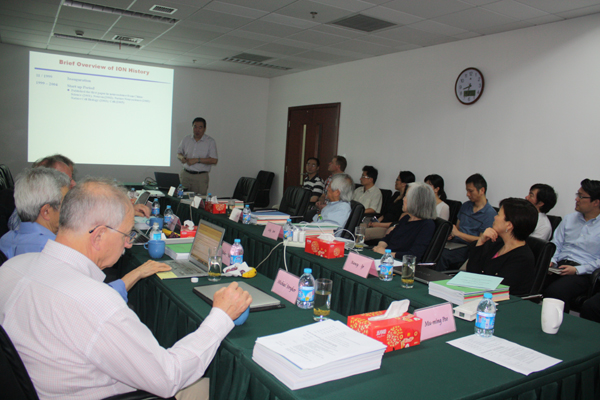
Dr. Jiulin Du was invited to visit Helmholtz Zentrum München in Germany, and gave a talk entitled “Brain vascular development: pruning and growth” during March 26-28, 2014.
Dr. LUO Zhenge’s lab reported that caspase-3, the effector protease involved in apoptosis, mediates elimination of AChR clusters. They found that caspase-3 was activated by cholinergic stimulation of cultured muscle cells without inducing cell apoptosis and this activation was prevented by agrin. This work was published online in the journal Developmental Cell on March 13, 2014.
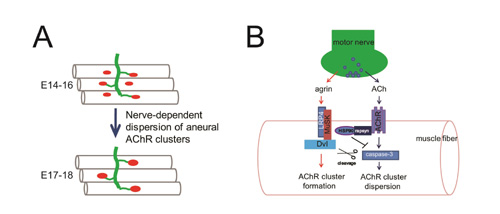
A study from Dr. CAI Shiqing’s lab reported that extension of lifespan does not necessarily delay age-related behavioral deterioration. The study demonstrates that dietary restriction preserves healthy behaviors in aged worms at least partially by sustaining a high 5-HT/DA level, and provides new insights to understand aging of the nervous system.
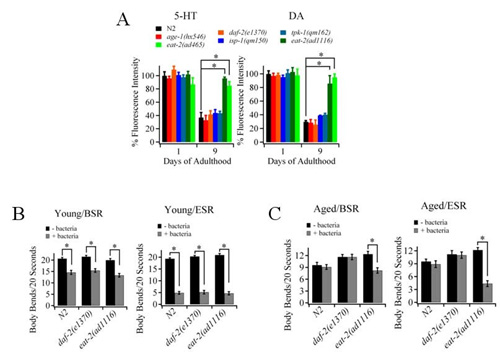
Recently, Dr. QIU Zilong’s lab reported that besides transcriptional regulation, MeCP2 could suppress miRNA processing through regulating the DGCR8/Drosha complex.This work was mainly carried out by graduate student CHENG Tianlin and colleagues under the supervision of Dr. QIU Zilong.
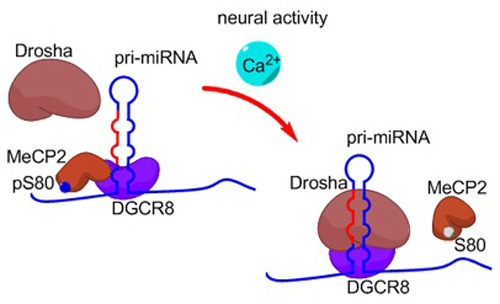
Recently, Dr. WANG Zuoren’s lab found that mlPNs receive inputs from both ORNs and mPNs, and provide lateral outputs to other neurons in the AL via gap junctions. Their study demonstrates that the two pathways formed by GABAergic PNs and cholinergic PNs.
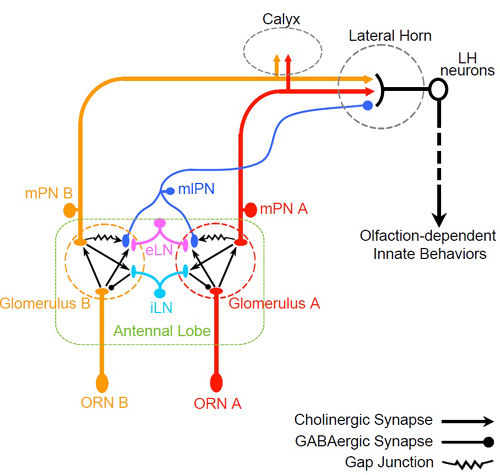
Recently, the research group headed by Dr. LUO Zhenge has shown that Rab10, a member of Rab family of small GTPases, is associated with PPVs, and that Myosin V interaction with Rab10 controls sorting of PPVs from the trans-Golgi network. This study has demonstrated a mechanism underlying directional membrane trafficking involved in axon development.
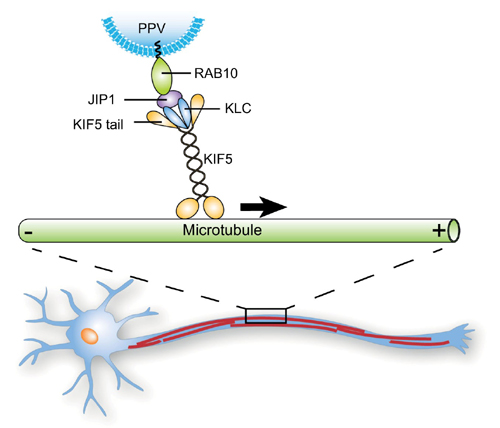
On Jan. 26th, Dr. Xiang Yu’s research group at the Institute of Neuroscience, Chinese Academy of Sciences, published a research article entitled "Oxytocin mediates early experience-dependent crossmodal plasticity in sensory cortices" in the journal Nature Neuroscience as Advance Online publication.
